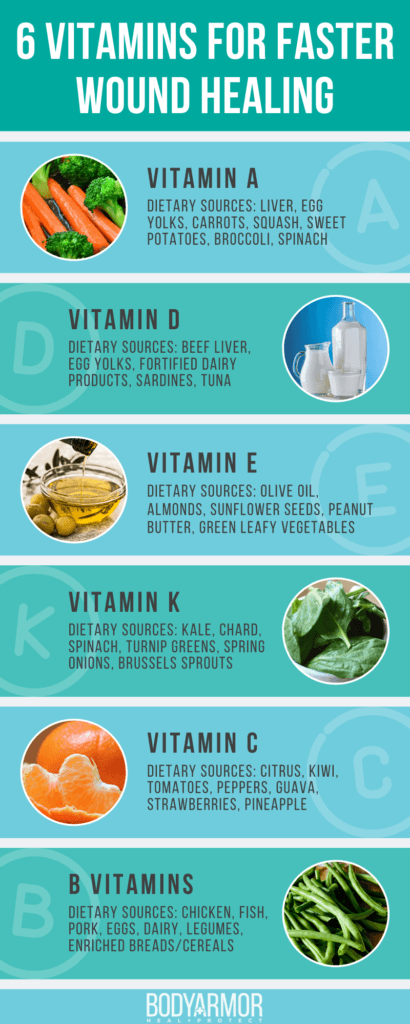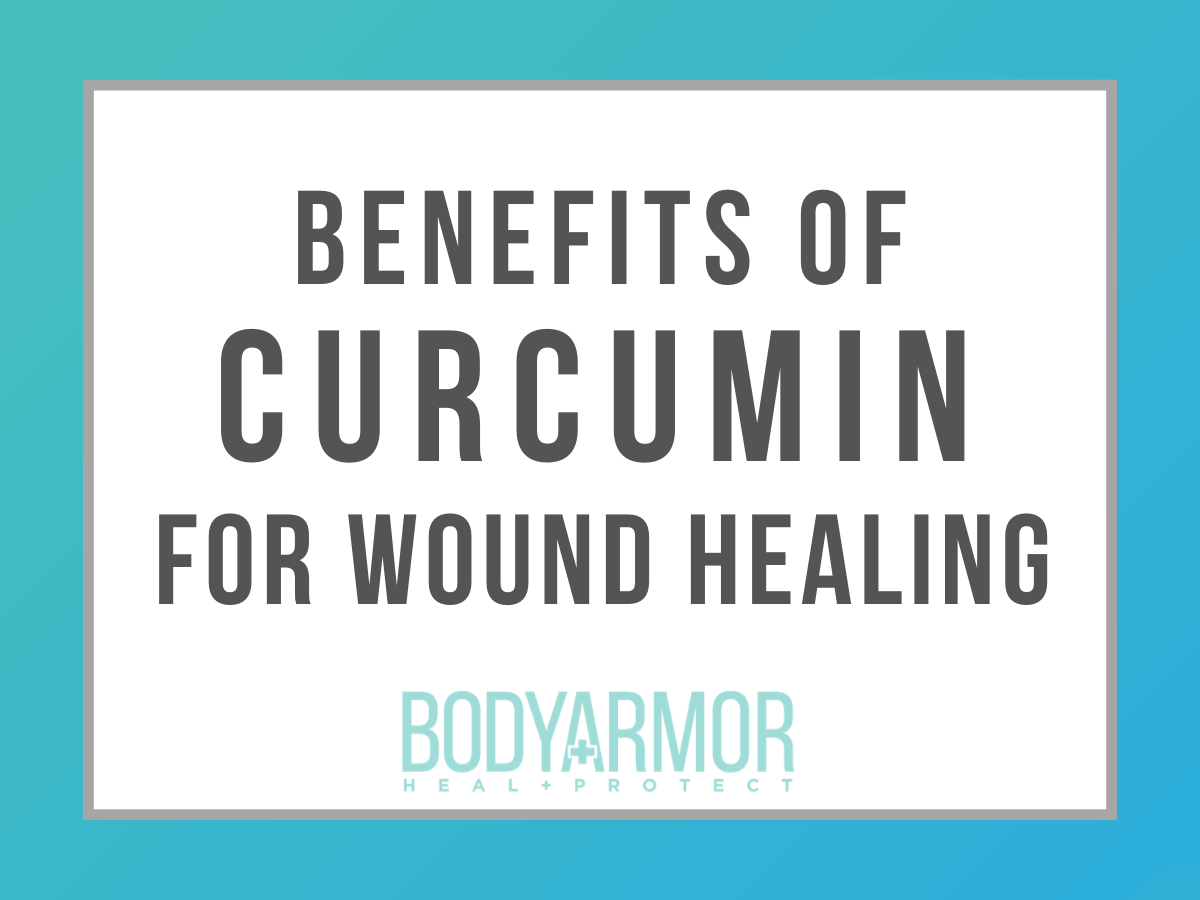
Benefits of Curcumin for Wound Healing
Curcumin is a popular cooking spice with a distinct flavor and numerous health benefits that aid in wound healing and controlling inflammation.

Fast and efficient wound healing relies on essential building blocks being available to the body’s cells. These materials include specific vitamins and nutrients – which can be enhanced through both diet and supplements.
When the body has an adequate supply of these key components, the cells are able to heal injured tissue faster and more effectively.
So, what’s the best vitamin for faster wound healing?
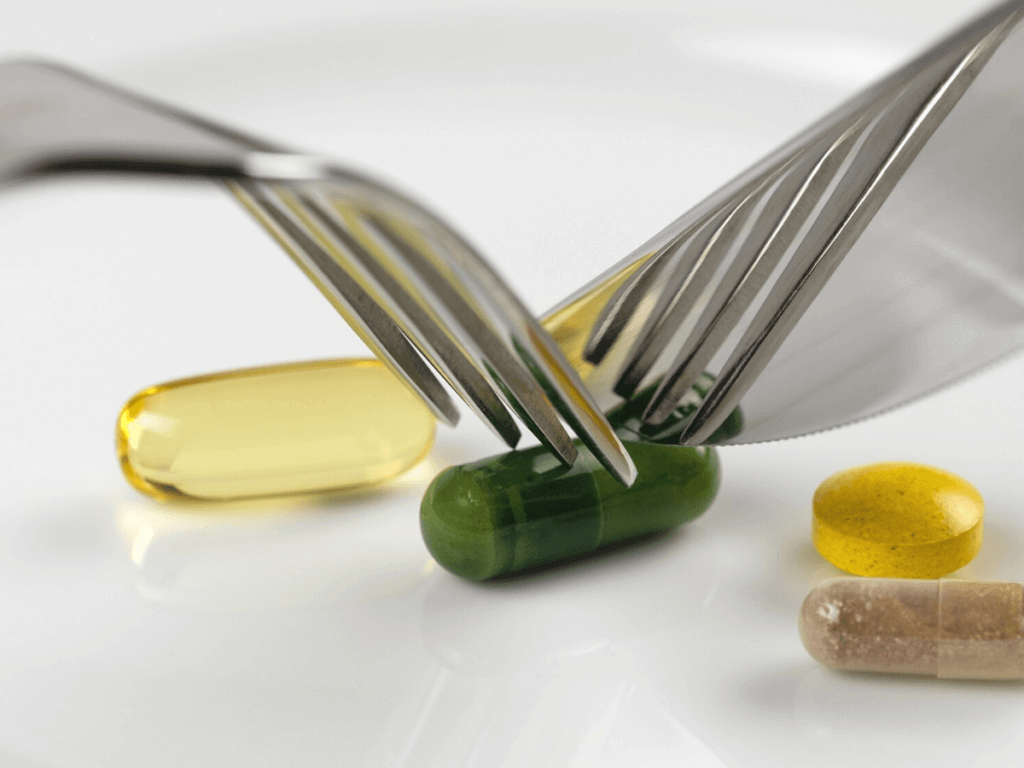
The truth is, everyone is different-so there’s no single “miracle” vitamin or supplement to accelerate wound healing. But here are 6 of the top vitamins to include in your regimen to heal wounds faster!
Fat soluble vitamins are not excreted by the body – these vitamins remain in liver and fat tissues until they can be utilized.
Vitamin A is necessary for several different aspects of wound healing. It assists with collagen deposition, strengthening of the matrix structure, and building of healthy epithelial tissue.
Low levels of vitamin A have been associated with an increased risk of developing infections. This essential vitamin supports the body’s natural inflammatory response and immune function, reducing infection risk and helping wounds to heal faster.
In injured tissue, vitamin A also stimulates and increases the rate of cell turnover, which promotes more efficient wound healing.
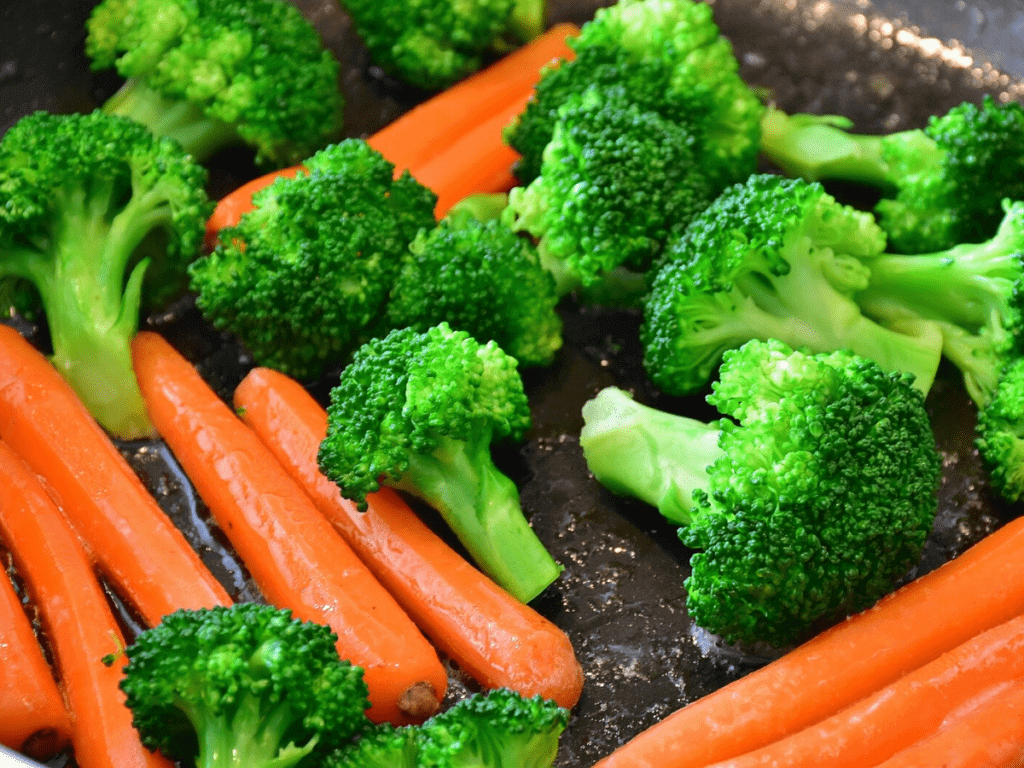
Dietary Sources of Vitamin A: liver, egg yolks, carrots, squash, sweet potatoes, broccoli, spinach
Vitamin D is essential for the metabolism of calcium and phosphorus. These nutrients are important in building and maintaining strong bones, which helps to prevent new wounds by reducing the risk of falls.
Vitamin D performs several other essential functions when it comes to healing wounds. Adequate vitamin D levels have been shown to promote immune function, enhance glycemic control, and mitigate inflammation.
Dietary Sources of Vitamin D: fortified dairy products, sardines, tuna, beef liver, egg yolks
Vitamin E is an antioxidant that regulates inflammation and encourages fast wound healing. It also aids immune function, supports connective tissue growth factor, and protects vitamins A and C.
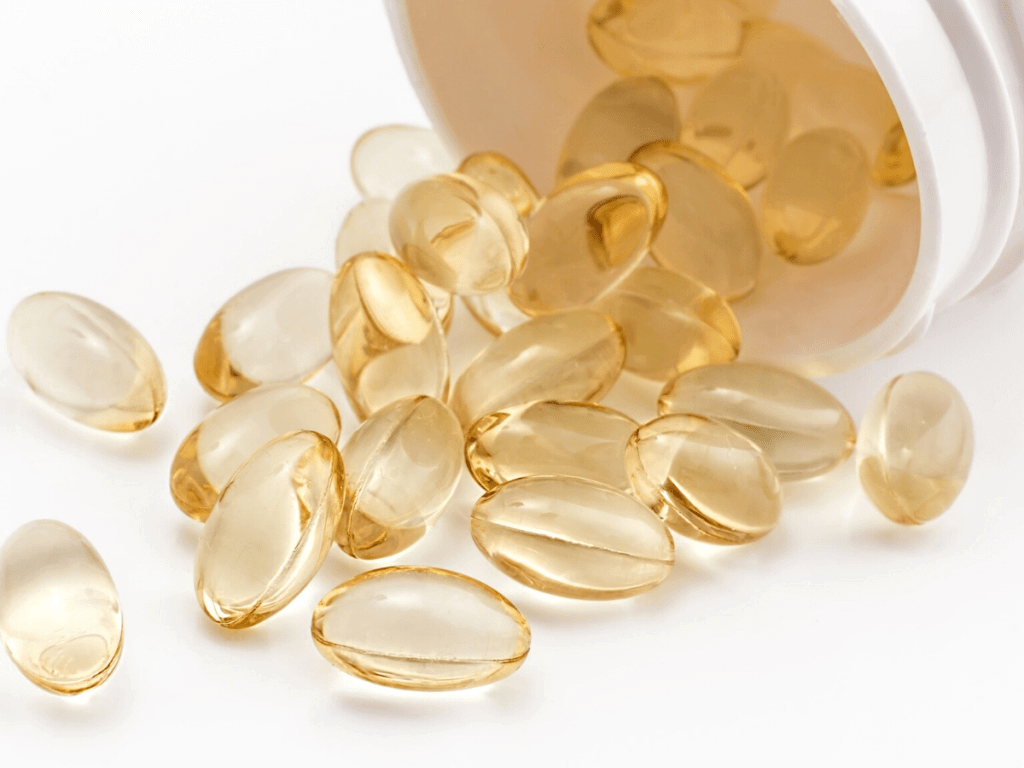
Dietary Sources of Vitamin E: sunflower seeds, almonds, hazelnuts, olive oil, peanut butter, green leafy vegetables
Vitamin K plays an essential role in the body’s ability to form clots in the blood. For this reason, anyone taking blood thinners such as Coumadin should always consult their physician prior to making any dietary changes that could change vitamin K levels.
In addition to its clotting effects, vitamin K supports the actions of vitamin D and calcium to strengthen bones. It assists with regulation of the inflammatory phase of healing and limits blood loss. Vitamin K encourages faster wound healing by keeping blood vessels healthy so that oxygen and nutrients can be effectively delivered to the tissues.
Dietary Sources of Vitamin K: kale, spinach, turnip greens, swiss chard, spring onions, cabbage, brussels sprouts, broccoli
Water soluble vitamins come from water components of food, and are carried in the bloodstream. They are not stored in the body, and excess levels are excreted in the urine.
It’s well known that vitamin C (or ascorbic acid) is a powerful immune-boosting antioxidant. This important vitamin plays a key role in fighting infection, reducing inflammation, and neutralizing free radicals.
But vitamin C is also essential for other specific steps of wound healing. When tissue is damaged, vitamin C helps to supply the wound bed with iron, is a key cofactor in collagen synthesis, supports fibroblast function, and aids in the construction of new blood vessels.
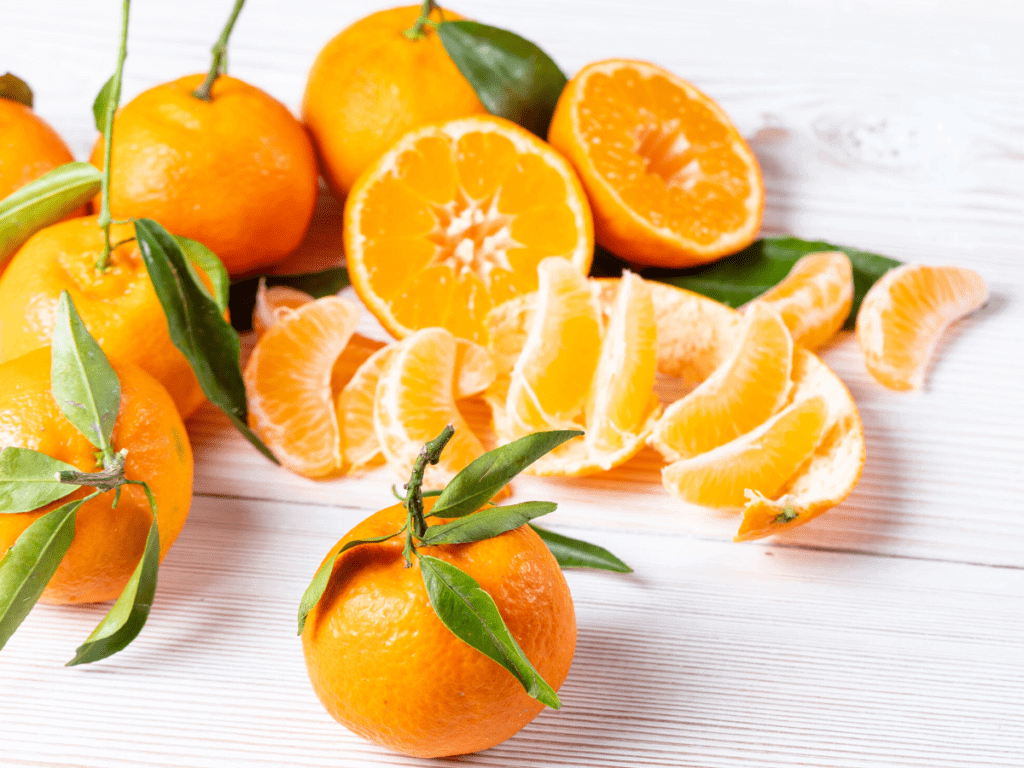
Dietary Sources of Vitamin C: citrus, tomatoes, peppers, strawberries, kiwi, guava, pineapple
The body requires B vitamins in order to produce energy from glucose, amino acids, and fat. Certain B vitamins are also required for collagen fiber cross-linking in tissue rebuilding.
B vitamins include: B1 (thiamine), B2 (riboflavin), B3 (niacin), B6 (pyridoxine), folate, and B12. Certain B vitamin deficiencies can cause delayed wound healing and even contribute to the development of new wounds.
Dietary Sources of B Vitamins: chicken, pork, fish, eggs, dairy, legumes, enriched breads/cereals
Before implementing dietary changes to target these vitamins, be sure to check with your doctor to ensure this is the right move for you.
